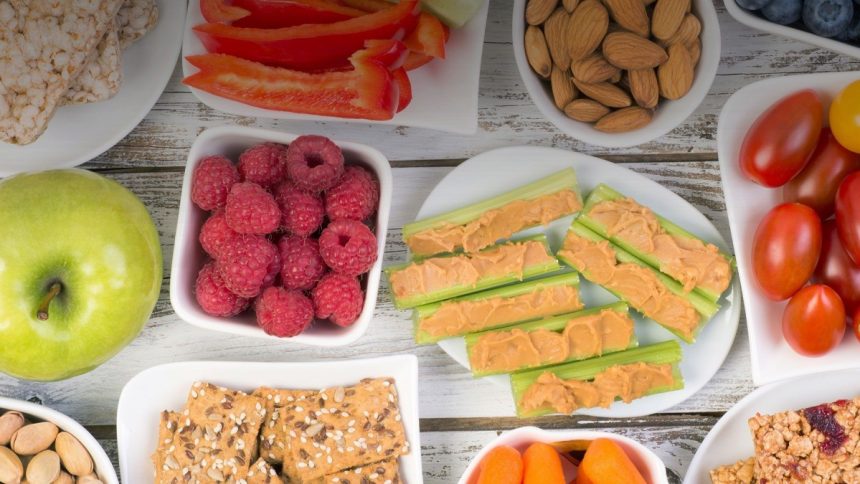Food has been a source of comfort and nutrition for a long time, but its function reaches beyond nutritional value for the body alone. In early times, food played a key function in balancing both mind and body. Today, studies have discovered that healthy nutrition plays a significant role in managing stress and cravings, most particularly in addiction therapy. As an individual is in rehabilitation, both mind and body become stressed, and foods consumed can work to promote healing and complicate healing, respectively. Stabilizing moods, energizing, and minimizing emotional triggers for cravings can occur with a balanced meal. Eat foods high in nutrients, and your body will regain whatever it took through addiction, in addition to mental sharpness and peace of mind. In this blog, healthy nutrition will be addressed in terms of its function in managing stress and cravings and its significant role in healing.
The Link Between Food and Stress
The food we eat has a direct impact on how we manage stress, especially during addiction treatment. Proper nutrition helps regulate hormones and brain chemicals, making it easier to handle emotional challenges.
Here’s how food affects stress:
- Nutrient-rich foods stabilize blood sugar levels, preventing mood swings.
- Foods high in omega-3 fatty acids, like salmon and walnuts, reduce inflammation in the brain, which can alleviate stress.
- Whole grains provide steady energy, reducing the fatigue that can make stress harder to manage.
- Antioxidant-rich fruits and vegetables help protect the brain from the effects of stress.
When you nourish your body with balanced meals, you’re supporting both your physical and mental well-being. By focusing on healthy foods, you can reduce stress and stay grounded during the recovery process. Proper nutrition creates a strong foundation for emotional stability and long-term success in treatment.
How Nutrition Affects Cravings
Historical Note:
Throughout history, food has been seen not only as a source of sustenance but also as a way to influence mood and behavior. The ancient Greeks believed that what people consumed directly impacted their emotional state, and modern science supports this view, especially in addiction recovery.
Nutrition plays a significant role in managing cravings during treatment. When individuals are in recovery, the body and brain are adjusting to new patterns, and food can help stabilize these changes. Eating a balanced diet can reduce the intensity of cravings by providing the brain with the nutrients it needs to function properly. For example, high-protein foods help maintain stable blood sugar levels, preventing the dips that can lead to intense cravings. A diet rich in healthy fats and complex carbohydrates also supports brain function and emotional regulation. At a luxury rehab in Margate, FL, healthy eating is often integrated into the treatment plan, ensuring that individuals receive the right nutrients to support their recovery. Proper nutrition helps reduce the emotional triggers that lead to cravings, allowing for better management of both physical and mental aspects of recovery.
Statistics: Studies show that proper nutrition can reduce cravings by up to 30% during the early stages of recovery.
Foods That Help Manage Stress
Certain foods can have a powerful impact when it comes to managing stress, and it’s particularly beneficial when it comes to addiction recovery. As we become stressed, chemicals such as cortisol are released in our body, and in high concentrations, can produce anxiety, irritability, and even cause physical symptoms. To effectively manage stress, it’s healthy to fuel your body with foods that promote mental and overall wellness. Foods rich in magnesium, such as leafy greens and nuts, stabilize chemicals of stress and calm down the nervous system. Omega-3s, in foods such as flaxseed and salmon, calm brain inflammation, and can drop feelings of tension and elevate moods. Whole foods, such as oats and quinoa, provide sustained energy and level out blood sugar, preventing spikes and dips that can cause a person to become irritated. Antioxidant fruits such as berries defend the brain against the effects of stress, too.
By consuming foods such as these in your diet, not only will your level of tension lessen, but your overall level of resilience will become increased. By consuming these rich foods, your body will have everything it needs to manage tension and maintain a healthy level of focus towards healing, and a strong platform for healing both mentally and physically will have been established.
Nutrients for Emotional Balance
Proper nutrition provides essential nutrients that support emotional balance, which is crucial during addiction treatment. When the body gets the right vitamins and minerals, it can help stabilize mood and improve overall well-being.
Here’s how certain nutrients can make a difference:
- Omega-3 fatty acids, found in fish like salmon, support brain function and improve mood regulation.
- B vitamins, present in whole grains and leafy greens, help reduce feelings of anxiety and depression.
- Magnesium, found in nuts and seeds, relaxes the nervous system and eases stress.
By focusing on these nutrients, you can better manage the emotional ups and downs that come with recovery. Eating a balanced diet that includes these vitamins and minerals can reduce mood swings, improve resilience, and enhance overall emotional stability. When you nourish your body with the right foods, you give your mind the support it needs to stay focused and calm, making it easier to cope with stress and cravings in recovery.
Building Healthy Eating Habits
Building healthy eating habits is key to managing stress and cravings in addiction rehabilitation. Maintaining a balanced diet can go a long way in healing, both physically and mentally, in rehabilitation. To begin, make healthy, consistent meals a priority during the day, not skipping meals and living off processed foods. Begin with small, achievable goals, such as including additional fruits and vegetables, and getting enough water, and lay a strong foundation for long-term success. Planning meals in advance can work, having healthy foods at your disposal even when life gets hectic. It’s not about discovering foods that work for your body, but foods that make your heart happy, too. Healthy eating doesn’t have to mean restriction.
By choosing whole foods, including healthy fats, whole grain foods, and lean proteins, you can develop a balanced, pleasurable eating routine that energizes your rehabilitation. With practice, healthy eating will become second nature, supporting your overall wellness and mental state, too. In addition, healthy habits will give your body and mind the energy and stability to navigate the mental and physical challenges of rehabilitation, strengthening your will and determination for long-term abstinence.
Strengthening Recovery with Healthy Eating
Healthy eating is paramount in creating strong rehabilitation and overall wellness. Nutrition plays a key role in supporting both mind and body in rehabilitation for addiction. By providing one’s body with healthy foods, one can boost mental sharpness, stop cravings, and manage stress with ease. Nutrition keeps one’s level of energy, and one can become and stay active and engaged in rehabilitation processes. By adhering to whole, balanced foods with proteins, healthy fats, and fiber, one can build a strong foundation for long-term sobriety. Eat a variety of healthy foods for healing, and one’s body can rejuvenate and rebuild, and for balancing one’s moods, too. Healthy eating keeps one in a positive state of mind, and one can have motivation in one’s rehabilitation journey. With healthy and conscious food intake, rehabilitation is not only about healing but about creating a healthy, long-lasting life for one’s future.
Lynn Martelli is an editor at Readability. She received her MFA in Creative Writing from Antioch University and has worked as an editor for over 10 years. Lynn has edited a wide variety of books, including fiction, non-fiction, memoirs, and more. In her free time, Lynn enjoys reading, writing, and spending time with her family and friends.















